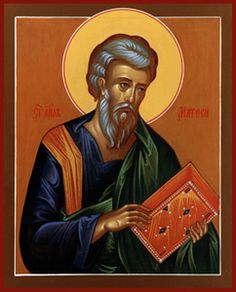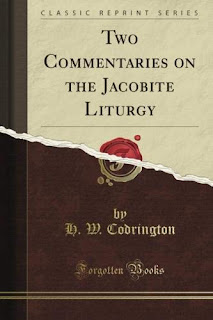Lead your brother to God
Fr. Dr. Joshi Varghese, Bhilai
(Diocesan Education Officer & PRO, Calcutta Diocese)
Evening: St. Lk 5: 17-26, Morning: St. John 5 : 1 – 18, Before Holy Qurbana : Ex 4: 10-17, 2 Kgs. 2: 1-11 Is 5: 20-25, Ezk 34:1-16 Holy Qurbana: Acts 5:12-16 :19 :8-12 Or 9:22-31 Rom 3: 27- 4:5, 2 Cor 12:7-10
St. Mark 2: 1-12
The healing of the paralytic is meditated on the 3rd Sunday of the Great Lent. The incident took place at Capernaum, where Jesus used to dwell.
a. Palliative care: Am I my brother’s keeper?
The healing of the paralytic is a unique event as the person to be healed is brought to Jesus by others. In most of the other healing incidents the sick came to Jesus on their own. The man with palsy is carried on bed by four people and brought before Jesus. When Jesus saw their faith, he said to the paralytic, “Son, your sins are forgiven” (Mk 2:5). St. Jerome and St. Ambrose would like to believe that Jesus was referring to the faith of the four who carried the paralytic. St. John Chrysostom favours the view that Jesus referred to the faith of the carriers as well as that of the man.
The role of ‘the four’ needs to be appreciated, for sans their help the man would not haven cured. They had faith in Jesus. Though it is not clear whether they were his friends or relatives, their love for the man is well reflected. They could have abandoned him and left him to his destiny to rot in bed for the rest of the years. But they were willing to spend their time and energy for the paralytic and that made the difference. There are tens of thousands of people similar to the fate of the paralytic, who are confined to their beds to various diseases or due to old age. Some may be terminally ill. A few of them would be fortunate enough to get the love and care of the beloved ones. But many do not receive proper care. It is our duty to take proper care of such people. Even our presence would refresh them and their care takers. Similar to ‘the four’ who voluntarily took the paralytic if we can offer few hours to take care of such bed ridden people/ patients, it would lift their spirits and give a much needed break to their care givers. The afflicted are not to be neglected but to be taken care of and to be carried in our prayers as well.
b. Blocking the vision
“So many gathered around that there was no longer room for them, not even in front of the door; and he was speaking the word to them. (Mk 2:5). As usual people had gathered to hear Jesus and as the preaching started it became ‘houseful’. Those who came earlier continued to happily hear Jesus and others couldn’t come near him. Hence the four who carried the paralytic “…could not bring him to Jesus because of the crowd…” (Mk 2:5). Unknowingly and unintentionally the crowd was blocking others from coming to Jesus.
As people of God, have we ever blocked others from having a Christ- vision? Do our words and deeds help others to know and reach God? Do our actions, as individuals or as Church, alienate others from the True God? Travelling in unreserved class of Indian railway, especially in North India is an experience in itself. As the train reaches a new station, the whole lot of passengers inside the compartment, try their best not to allow any new passenger from the new station. If someone luckily gets in he would also join others in not letting anyone in from the next station onwards. Often the members of the Malankara Church behave similarly. As we are already comfortable in our ‘compartments’, we don’t want anyone else to disturb us by entering in to our compartment called the Church. Unlike the crowd in the passage, we intentionally block them from joining the Church, the body of the Christ.
The unscrupulous methods used to gain power, unethical ways to gain prominence, slandering etc. by the leaders of the Church and the laity have become stumbling blocks not only to the people of other faith but also to our own younger generations. Such unchristian ways of life are blocking many youngsters from coming closer to Christ.
c. Motivate to Rise up
“I say to you, stand up, take your mat and go to your home” (Lk 5:11). The paralytics are easy to be seen and identified but there are millions of those who are paralysed emotionally/mentally. Those who are mentally paralysed might vary from people having occasional mood disorders to persons undergoing severe depression. A number of factors might lead to depression. Emotional or physical abuses, genetic disorders/ history, drug abuse, divorce, death of dear ones, sudden or chronic illness etc. are some causes of depression. Earlier people refused to accept such mental conditions as they feared being labelled as turned mad. In recent times more awareness is being spread about the need to help those who suffer such occasional or continual mental palsy. The confessions of celebrities who have undergone such depression have shown that this can affect any one without any discrimination of age, wealth or status.
The people who are prone to or who are under such mental crisis need a support group similar to those who carried the paralytic to Jesus. Apart from getting professional help they need a strong support group who would be able to ‘lift them up’ from their mental mats. They need someone to listen to them and to stand by them without blaming. The loving and inspiring words of the support group would be a source of strength to the depressed. The Gospel passage should urge us to watch out for those who are emotionally paralysed and to look after them. The ultimate healing, whether it be physical or mental, can be found in Jesus.
Conclusion
The Lenten season is a reminder to look after our afflicted brethren. As we come together as Church, let us also be aware about those who are thirsting for Christ and help them to come near His healing presence.
















